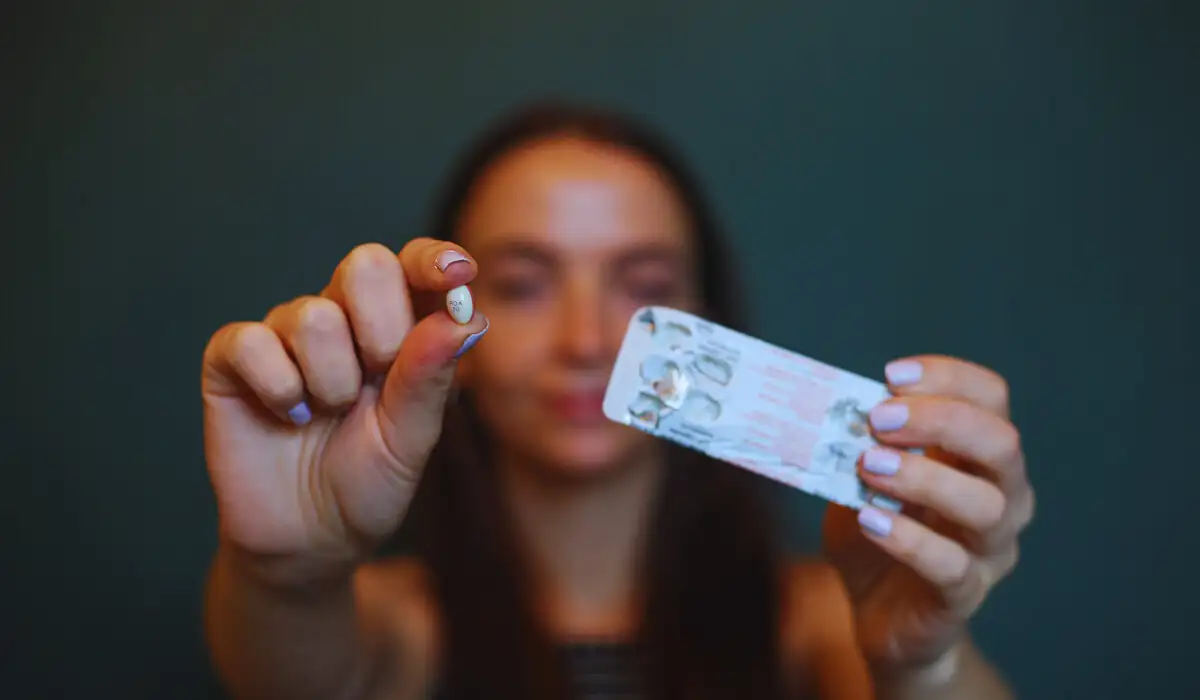Accutane is the other name for isotretinoin – a powerful medication used to treat acne. It is used for chronic acne that does not respond to other therapies.
This medicine acts by reducing the size of sebaceous glands in the skin, thus helping to reduce acne. Accutane is an effective treatment.
However, it can result in serious side effects, such as dry skin. It can also cause other more serious problems. Pregnant women are advised to disuse this drug during pregnancy.
Some studies suggest Accutane may cause weight changes. More research is needed. This article examines Accutane’s benefits and side effects, including possible weight gain.
What is Accutane?

Accutane, or isotretinoin, is a medicine used for treating really bad acne. It works by making the oil glands in the skin smaller, so less oil is made. This helps to stop acne from forming. It’s a strong drug used only after other acne treatments haven’t worked.
Isotretinoin, which used to be called Accutane, is like vitamin A and works in a similar way in your body. You shouldn’t take extra vitamin A with it because it can be too much. You can find isotretinoin under different names. These include Absorica, Amnesteem, Claravis, Myorisan, and Sotret.
Uses of Accutane
Main Uses of Accutane:
- Treating Severe Cystic Acne: Accutane is mainly used for very bad cystic acne and acne that other treatments can’t cure.
- Treating Mild Acne: It‘s also used for less severe acne that doesn’t get better with other treatments, especially if it causes scars or emotional issues.
- Other Skin Problems: Accutane helps with skin conditions like Hidradenitis Suppurativa, severe rosacea, and Harlequin ichthyosis. It is also prescribed for lamellar ichthyosis and reduces skin growth in xeroderma pigmentosum.
- Rare Conditions: Sometimes, doctors use it for fibrodysplasia ossificans progressiva. They also use it for stubborn genital warts.
Benefits of Accutane
Accutane, or isotretinoin, is highly effective for treating severe acne. It is particularly good at dealing with stubborn forms of acne, such as cystic acne. This is because it targets the main causes: excess oil, clogged pores, and inflammation. This often leads to clearer skin.
Another benefit of Accutane is its ability to shrink oil glands. By reducing the size of these glands, there is less oil production. This slows bacterial growth, reduces inflammation, and prevents acne from worsening.
What sets Accutane apart is its long-term effectiveness. It’s the only acne treatment known to have lasting benefits. Statistics indicate that about 70% of users achieve clear skin permanently. The remaining 3% may see some acne return, but it’s generally less severe.
Accutane also plays a significant role in minimizing scarring. By effectively treating active acne, it reduces the likelihood of scars forming. Some patients report that their scars have improved or completely disappeared after treatment.
Finally, improving skin clarity often leads to a boost in self-esteem. This is especially important. Acne can impact mental health, causing issues like depression and social anxiety. This is especially true for teenagers. Clear skin can lead to a more positive self-image and increased confidence.
Side Effects of Accutane
Accutane is a drug for serious acne. It has many side effects. Dry skin, especially chapped lips, and a dry nose are common. You can use lip balm and moisturizer for these. But, some side effects are serious, like skin reactions with fever and blisters. These need urgent medical help.
The drug can also hurt your bones and muscles, causing pain. In teenagers, it might stop the growth of long bones. Hearing and vision problems can happen, too, like ringing ears or trouble seeing at night.
For women who can have babies, Accutane is risky. It can cause birth defects, miscarriage, or stillbirth. Women must take regular pregnancy tests and use two kinds of birth control.
Accutane might also affect mental health. It can cause depression or even suicidal thoughts. It’s important to watch for any mental health changes and tell a doctor right away.
Other issues include higher cholesterol and blood sugar levels. It can also lower red and white blood cells. The drug can make your eyes drier, which can affect contact lens wearers and make your skin more sensitive to the sun.
There’s some talk about Accutane and stomach problems like Crohn’s disease, but it’s not proven. Still, the FDA warns about possible digestive issues.
Regular check-ups are important for anyone taking Accutane. This is to keep an eye on these side effects. The drug works well for severe acne, but you have to be careful because of these side effects.
Precaution and Warnings
- Do not take vitamin A supplements with Accutane to avoid extra side effects.
- Do not give blood while taking Accutane, and for 30 days after you stop. This is to prevent birth defects if a pregnant woman receives the blood.
- Avoid skin treatments like waxing, dermabrasion, or lasers while on Accutane and for 6 months after. These can cause scarring.
- Accutane can make your skin more sensitive to the sun. Use sunscreen and wear protective clothes.
- Be careful with driving or risky activities if Accutane affects your vision.
- Accutane might cause driving or risky activities if Accutane affects your vision.
- Accutane might cause dry eyes, especially for contact lens users.
Accutane and Weight Gain
Accutane, used for treating tough acne, might cause side effects like weight changes. This isn’t officially listed by the FDA, but many users notice it. When you start Accutane, your body changes, so you must adjust some activities. Avoid things like tanning, drinking alcohol, and heavy exercise.
Medicine Interactions
Accutane can react with different drugs, like seizure medicines, Orlistat, and some antibiotics. Inform your physician about every medication and dietary supplement you take.
Pregnancy and Contraception
If taken while pregnant, Accutane can result in severe birth defects. Women who can get pregnant should test for pregnancy regularly.
Use two birth control methods while on Accutane and for a month after stopping. Avoid breastfeeding while taking Accutane and for a month after you stop.
Mental Health
Accutane may lead to changes in mood or behavior, like new or worse depression, anxiety, or suicidal thoughts. Watch your mental health closely and tell your doctor about big changes.
Accutane, or isotretinoin, is a potent acne medication, mainly for severe cases. It reduces oil gland size, helping to clear acne. While effective, it carries risks like dry skin and serious health issues, particularly for pregnant women. There’s debate about Accutane causing weight changes, but more research is needed.
Conclusion
There isn’t enough solid evidence to conclude that taking Accutane will cause a significant increase in weight, even though some people may experience changes in appetite or mood as possible side effects.
For individualized guidance and to monitor any possible side effects, people who are thinking about taking or already using Accutane should speak with their healthcare providers.

